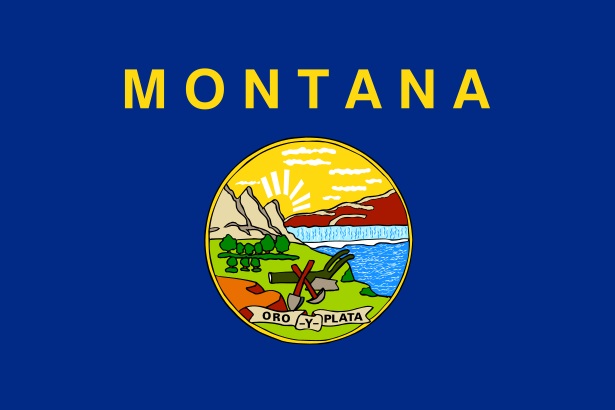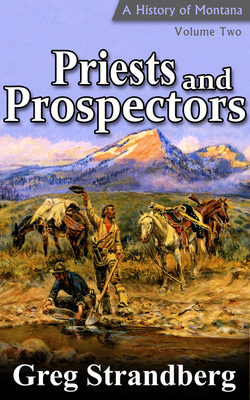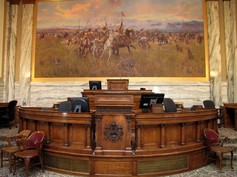 It's quiet now. Wait 10 months.
It's quiet now. Wait 10 months. I thought about that quote shortly after the zombie apocalypse that took place in Great Falls last week.
See, I decided to listen to an interview with Glenn Oppel, the Montana Chamber of Commerce Government Relations Director that took place on 102.7 KNIX radio in Great Falls on February 7, 2014. Why I did that at 4 AM is anyone’s guess.
Here are some of the highlights and my views.
Montana Chamber of Commerce Mission in 2014
 Glenn Oppel
Glenn Oppel Oppel mentions restrictive campaign finance rules and how hard it is to get an upper-hand with those kinds of rules in place. Now, Oppel is also a registered lobbyist, but he’s been around the legislature before, almost as long as I have (We’ll get to my time in the 2001 Legislative Session next week). See, Oppel’s been lobbying for 10 years over 5 sessions. People like that know more about how the citizen legislature in Helena works than those new people going in. That’s interesting.
He recognizes that those legislators are making a sacrifice to come to Helena, such as leaving homes, families, and businesses. Not to mention they’re only getting paid $10.72 an hour or so. That must be hard.
Bit it’s that citizen legislature we need making public policy that’s good for the state, not career people that are in Helena year-round.
Business in Montana in 2014
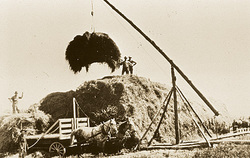 Getting the job done
Getting the job done Worker’s Comp is one of the main problems he sees business facing, mainly due to issues passed during the 2011 Legislature. A labor advisory management council has been appointed to see how costs can be reduced. Still, I and the majority of the people in Montana know little about this issue, right?
Wrongful Discharge is an issue, mainly one for manufacturers. These issues cost businesses money in the long run and it scares them. A complicated income tax doesn’t help matters. Reducing the 6.9% marginal income tax rate, the 16th highest in the nation, is a priority for the Montana Chamber of Commerce, and Oppel points out that states with lower marginal income tax rates attract more of those businesses.
Environment and the Montana Sage Grouse in 2014
 The Sage Grouse (theme song below)
The Sage Grouse (theme song below) The whole issue with sage grouse in Montana started in 2010 when The U.S. Fish and Wildlife Service (USFWS) made it known that the sage grouse was being looked at, and that just mucks everything up.
 Known for shaking tail feathers
Known for shaking tail feathers What do you think the copy clerk does when he copies for 4 hours a day? He reads that shit and learns.
When it comes to an animal like that, you can file all the lawsuits and whatnot, but that just slows things down. That’s usually the idea, and it takes that issue off the table for years.
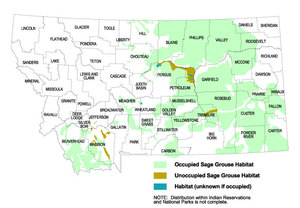
So for people living there that’s a big issue. For people in Missoula it’s not so much, or is it?
There is a provision in the proposed legislation that states if there is a fall in the sage grouse population there will be a 3-year cessasion of development.
 Strut your stuff
Strut your stuff So what’s this development we’re talking about? The Keystone XL Pipeline, of course.
The 1-mile radius might be too big, and it’s suggested that be dropped to 0.6 miles. Now what does that mean? Well, it could mean if you’re a farmer you might not be able to do whatever – build a silo, plow a field, or throw some hay bails or even some old junk down on your land.
It’s a potential, but one that mainly occurs because the government views you as causing problems for those sage grouse populations. Who’s going to say that? Those biologists I worked with in Helena?
The deadline for listing is October 21, 2015. States have to come up with their own conservation plans, which Montana Fish, Wildlife, and Parks needs to be working on right now.
Legal Reform in Montana in 2014
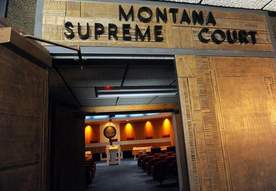
One issue that was mentioned was the Business Equipment Tax. I don’t know much about this issue myself. Maybe someone will leave a comment in the comments section down below to fill us in more about it. Remember, around 800 a day visit this site.
A main issue in 2014 for Montana is liabilities. It’s because of liabilities for businesses, or even the chance at having liabilities, that so many corporate councils look at the lay of the land in Montana to see if it’s friendly in regard to Tort liabilities. They don’t like what they see.

Sue and settle, mainly with environmentalists suing agencies over environmental resource permits, is a real problem. Groups can’t get their goals through the legislature so they turn to the courts, often choking them up at the expense of more important concerns, at least to some.
So in other words, if a business finally does get a permit – which requires them to go through all kinds of government oversight and regulation first – they’re almost ensured a lawsuit.
Lots of these come from out of state influences, and it happens on both sides unfortunately.
 Frédéric Bastiat
Frédéric Bastiat Once again, it reinforces how important it is to have an educated and informed legislature.
As Frédéric Bastiat once said, “the politician attempts to remedy the evil by increasing the very thing that caused the evil in the first place: legal plunder.”

